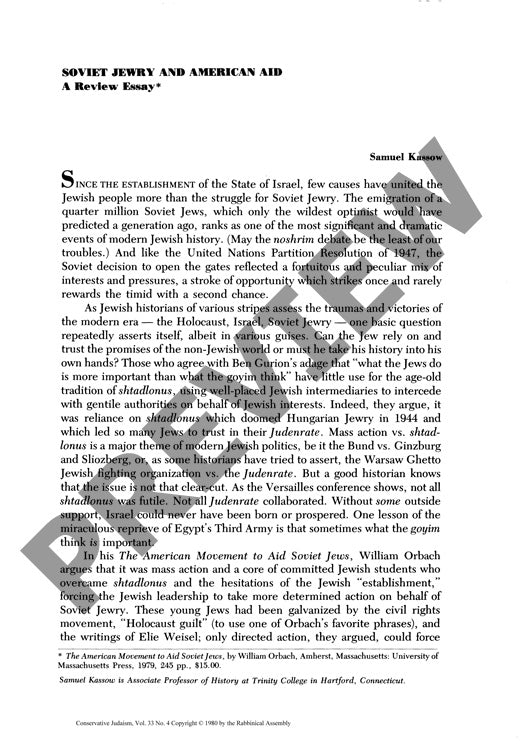Soviet Jewry and American Aid a Review E
Couldn't load pickup availability
The campaign for Soviet Jewish emigration marked a pivotal shift in modern Jewish politics, pitting traditional diplomatic intercession (*shtadlonus*) against emerging grassroots activism. William Orbach's *The American Movement to Aid Soviet Jews* attributes the movement's success to young Jewish activists, inspired by civil rights advocacy and Holocaust awareness, who challenged establishment conservatism to demand more forceful action. Yet while Orbach's conclusions about movement dynamics prove insightful—particularly that success hinges more on target state characteristics and alignment with American values than on internal unity—these insights remain disconnected from his predominantly organizational narrative. Soviet Jewish emigration ultimately stemmed from three critical factors: the USSR's economic recalculations during détente, psychological transformation among Soviet Jews following failed liberalization hopes, and sustained external pressure campaigns. Although Orbach's work valuably illuminates American Jewish activism, it neither convincingly demonstrates how grassroots pressure overcame institutional caution nor adequately contextualizes the broader Soviet political developments that shaped this watershed moment in Cold War Jewish history.

More Information
-
Physical Description
-
Publication Information
Published 1980
ISBN
-
Publication Credits
Samuel Kassow

